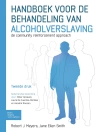Masterarbeit aus dem Jahr 2006 im Fachbereich Psychologie – Arbeit, Betrieb, Organisation, Note: 1, 3, Hochschule Ludwigshafen am Rhein (International Management Consulting), Sprache: Deutsch, Abstract: Since already 1.5 years, my occupational activities have been consisting in “improving things” – this is an exciting, interesting and challenging activity for a young person like me. More precisely, my activity is in the field of „in-house production consulting” with lean-manufacturing principles. Even more precisely: It is the supervision and organization of the KAIZEN-Office1in an assembly centre of an European manufacturer.
Because of this background, I’m familiar with the application and implementation of many Kaizen and Just-In-Time principles. By introducing the production system it was continued to improve the continuous improvement process and standardized it corporation-wide. Implementing a continuous improvement process (CIP) or rather the production system proved to be very successful. Quality improvement with a failure reduction in front of customers up to 90 %, increase of efficiency up to 40 % within five years with a delivery reliability of 100% are only parts of the reached success. However, it can increasingly be noticed that the huge potentials at the beginning of the implementation of the lean-manufacturing-principles cannot be reached anymore – the ”low-hanging fruits” are already harvested. But not without a reason, one of the core messages of the Kaizen-philosophy is: The current state has always to be seen as the worst.
Consequently, three things accumulated:
– The insight that the success of a pure use of “hard improvement methods” (for instance lean manufacturing) is limited and that the limited part were not the methods themselves, but the human beings who use them or rather should use them.
– My aroused interest for the theories of Nikolai D. Kontratieff and the conclusions of the current literature about the 6. Kontratieff (see chapter 1.2.) – And the search for a topic for my MBA-dissertation
Consequently, the topic for this work was ’only’ a purely logical conclusion. For me, an educated engineer, who has always been trained to purely technical, mathematical and systematic ways of thinking in my previous education period before my MBA-studies, the chosen topic is a very tempting challenge. But in my opinion, there is just here a high potential to consider organizational psychological processes from a different point of view.
Peter Bebersdorf
Identification and commitment as a catalyst of a strong organizational citizenship behavior on the shop floor level of manufacturing companies [PDF ebook]
Determination of key success factors
Identification and commitment as a catalyst of a strong organizational citizenship behavior on the shop floor level of manufacturing companies [PDF ebook]
Determination of key success factors
Mua cuốn sách điện tử này và nhận thêm 1 cuốn MIỄN PHÍ!
Ngôn ngữ tiếng Đức ● định dạng PDF ● ISBN 9783638594530 ● Kích thước tập tin 1.6 MB ● Nhà xuất bản GRIN Verlag ● Thành phố München ● Quốc gia DE ● Được phát hành 2007 ● Phiên bản 1 ● Có thể tải xuống 24 tháng ● Tiền tệ EUR ● TÔI 3808764 ● Sao chép bảo vệ không có












